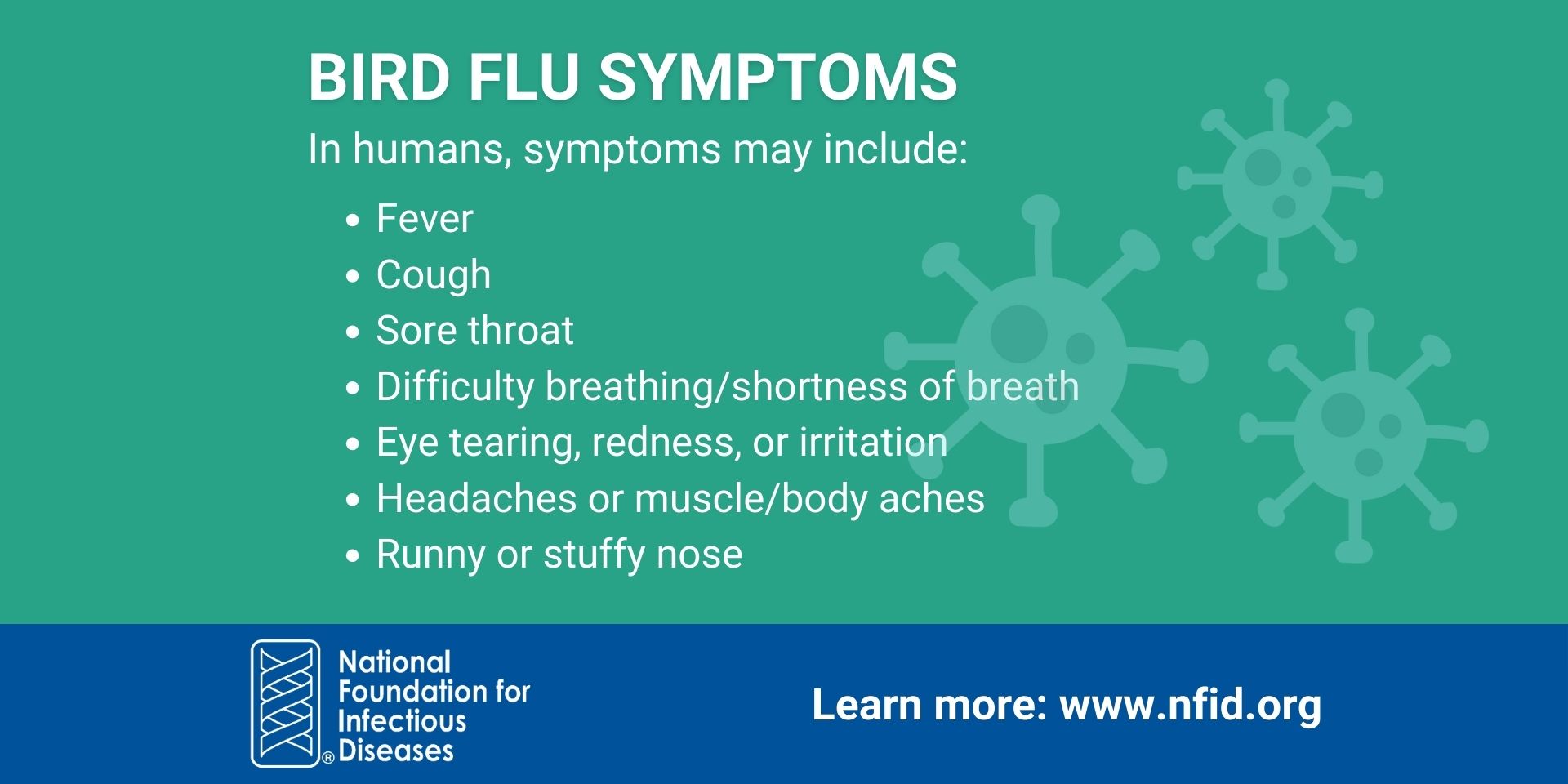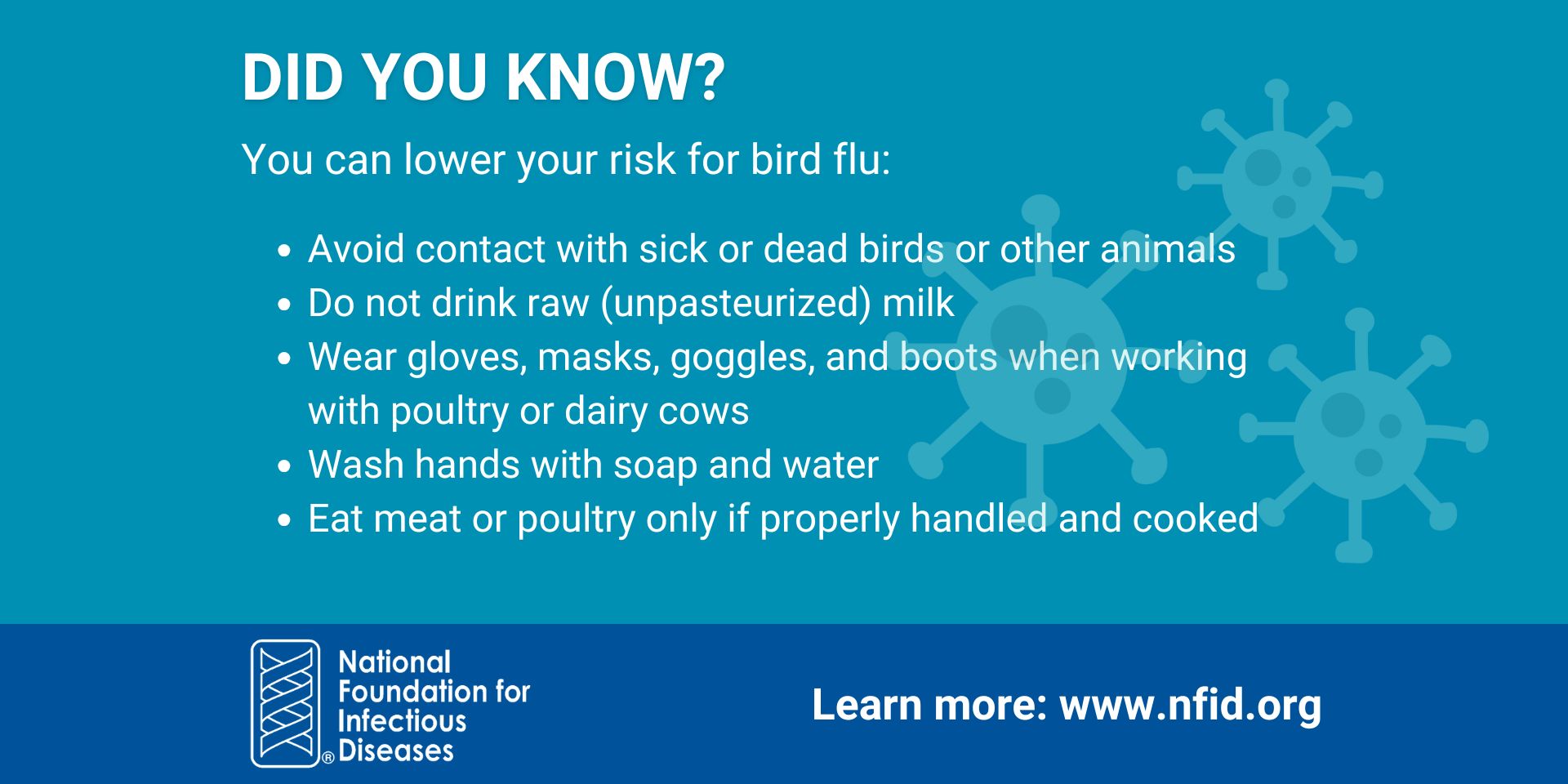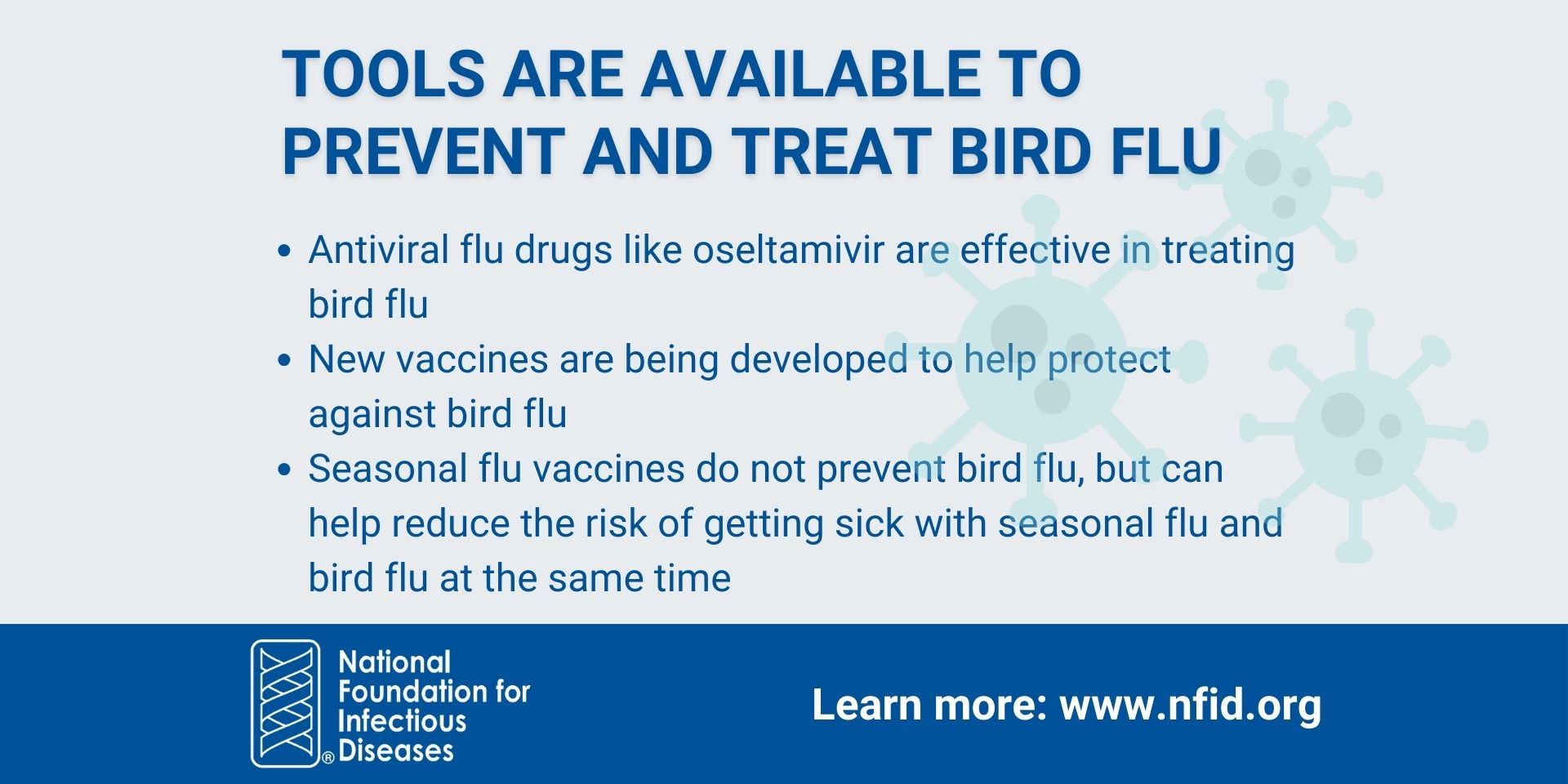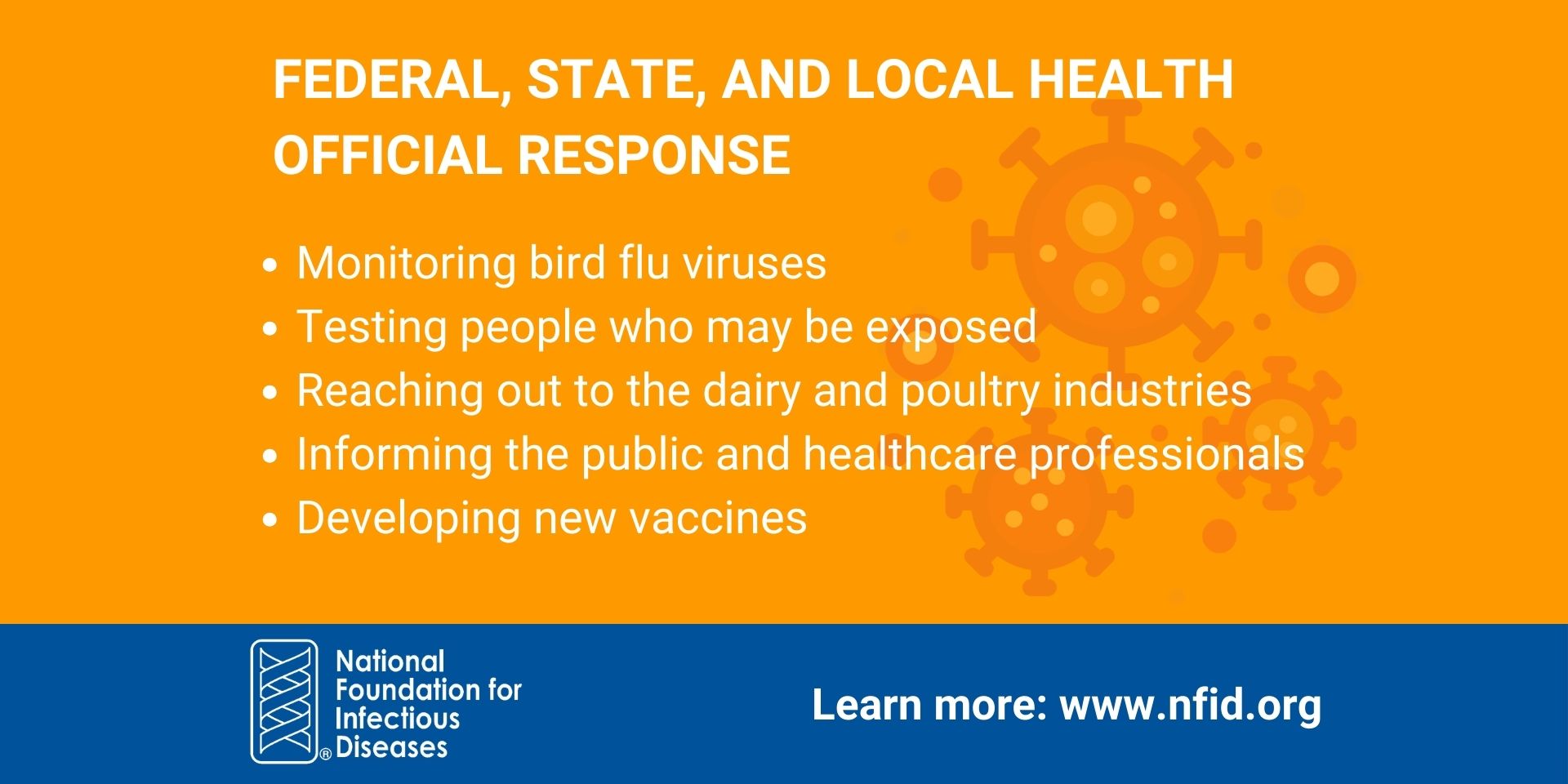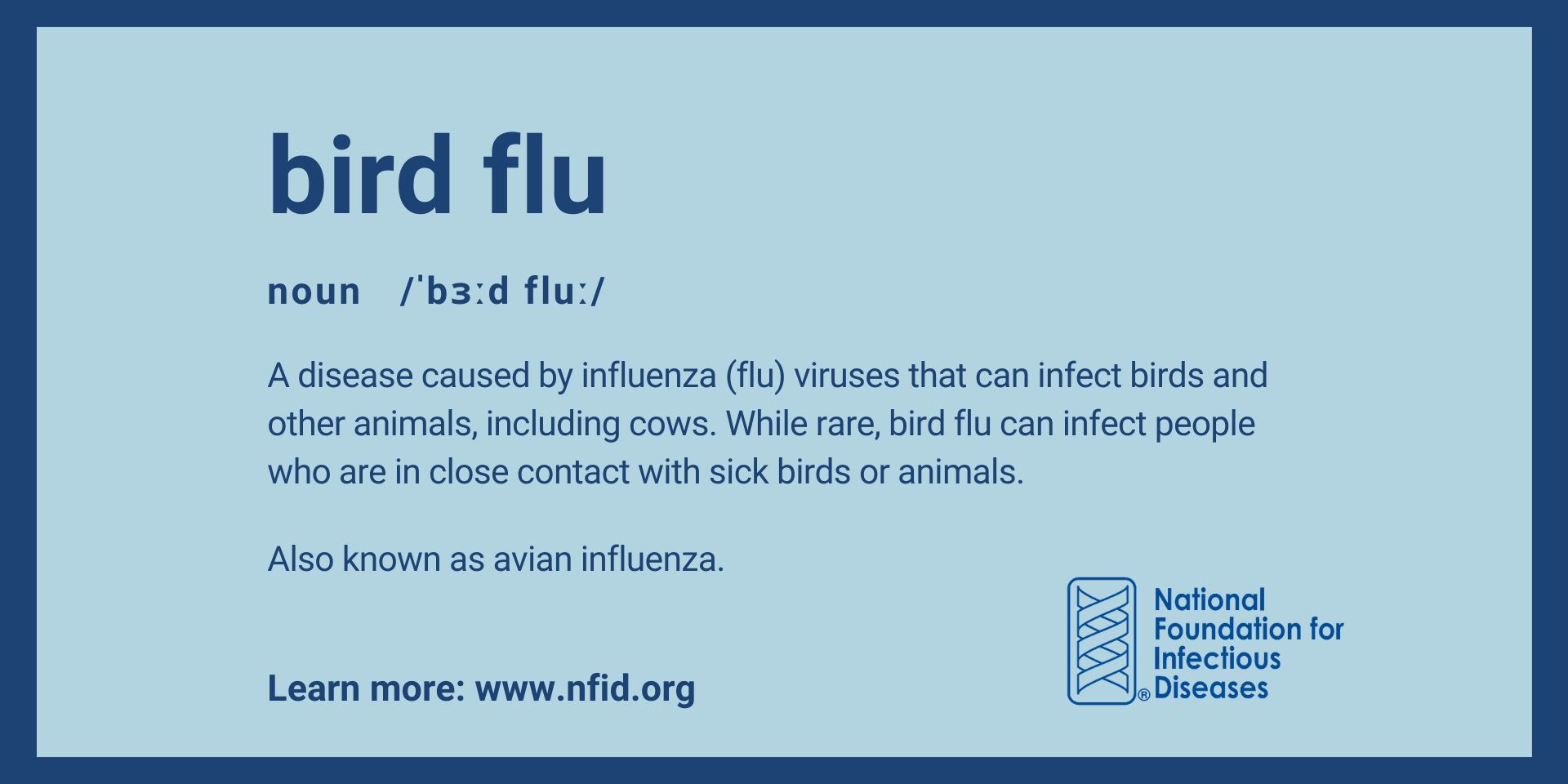
Bird flu, also known as avian influenza or A(H5N1), is a contagious disease caused by viruses that can infect birds and other animals, including cows. While rare, bird flu can infect people who are in close contact with infected birds or animals.
Bird flu has been circulating in animals since the 1990s and causes high death rates in infected birds. Unless you are in close contact with infected birds or other animals, the risk to the general public is low.
Share these graphics/sample social media posts to help raise awareness about bird flu and tag NFID channels (https://linktr.ee/nfid):
- According to @CDCgov, #BirdFlu infections in birds, poultry, and cattle currently pose a low risk to the public. But if you are in close contact with infected birds or other animals, take steps to help protect yourself. Learn more: www.nfid.org/flu
- Although #BirdFlu rarely infects humans, you can lower your risk by avoiding contact with sick or dead animals and not drinking unpasteurized milk. Learn more: www.nfid.org/flu
- #DYK: Antiviral flu drugs like oseltamivir are effective in treating #BirdFlu and new #vaccines are being developed? Learn more: www.nfid.org/flu #FightFlu
- #BirdFlu symptoms include fever, cough, sore throat, and more. If you think you may be infected, talk with a trusted healthcare professional about antiviral treatment. Learn more: www.nfid.org/flu
Related Resources

Bird Flu Update
In this episode, NFID experts discuss avian influenza or A(H5N1), also known as bird flu, which has been causing outbreaks in poultry and dairy cows in several states throughout the US …

